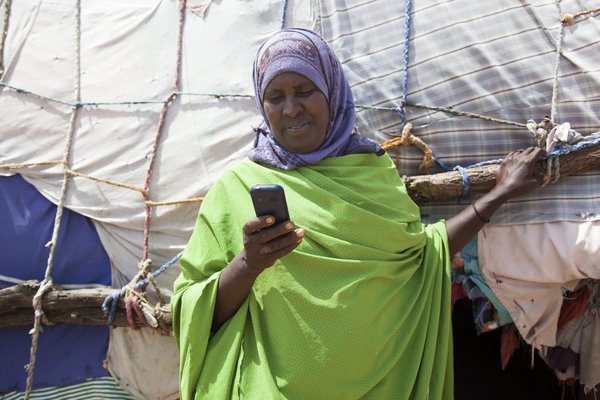 Read this article in French
Read this article in French- Share this article
- Subscribe to our newsletter
Investing in rural digital infrastructure
Lack of digital infrastructure risks leaving millions of rural families in poverty, the International Fund for Agricultural Development (IFAD) warns in June 2021.
Despite a massive increase in migrants sending money home via digital transfers due to the COVID-19 pandemic, millions of their rural family members struggle to access the mobile banking services that could help lift them out of poverty.
Significant increase in mobile remittances
Driven by a switch from cash because of lockdowns that limited informal channels and social distancing rules, mobile remittances increased by 65 per cent last year, rising to USD 12.7 billion. In spite of the global economic recession due to the pandemic, migrants continued to send money home to their families, with remittances in 2020 reaching USD 540 billion – a drop of only 1.6 per cent compared to the previous year.
However, in many countries, people living in remote rural areas have sparse local access to banking services or limited mobile connectivity, IFAD points out. In addition, there is a lack of agents offering mobile money services such as pay outs in cash. Frequently, money service providers are only located in urban centres. This means millions of poor rural people have to travel long distances to towns or cities, often at significant cost, to receive the cash sent digitally by their migrant family members.
Mobile banking services bring advantages
Digital transfers are cheaper than traditional cash transfers, and mobile banking services also provide the opportunity for migrants and their families in their countries of origin to access useful and affordable financial products to better manage their finances, including savings, loans and insurance.
Across the globe, 200 million migrants regularly send money to their 800 million relatives. This plays a crucial role in their lives and livelihoods. Almost half of these families live in rural areas of developing countries, where poverty and hunger are highest. Families use the funds sent by migrant workers to cover basic household needs such as food, housing, school and medical bills, as well as to start small businesses. These resources can often transform both families and local communities.
While the pandemic accelerated the adoption of digital transfers and mobile money accounts, it also highlighted pervasive gender inequality, according to IFAD. Research shows that women are 33 per cent less likely than men to have a mobile money account.
(IFAD/ile)
Read more at IFAD website





Add a comment
Be the First to Comment